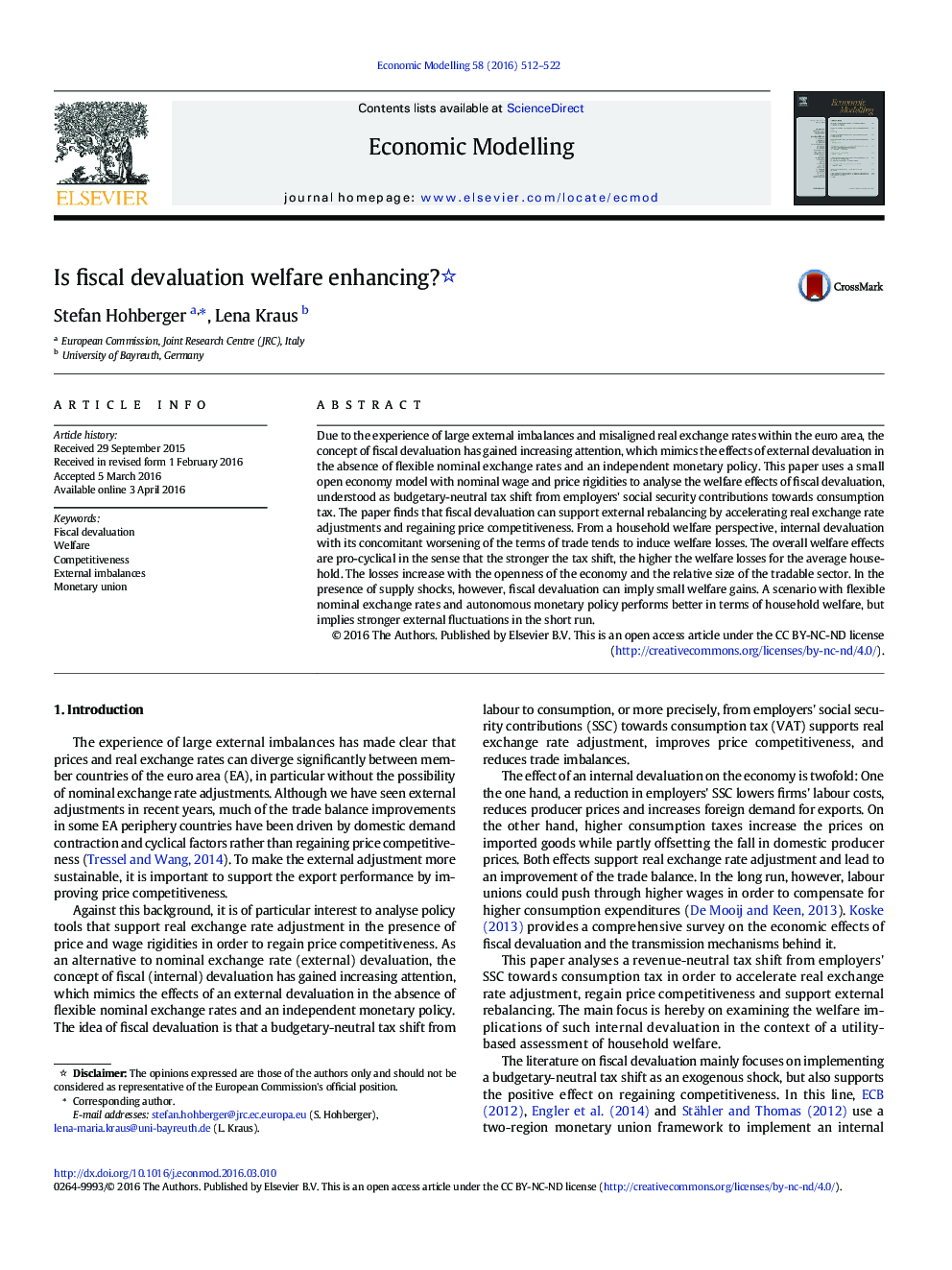| Article ID | Journal | Published Year | Pages | File Type |
|---|---|---|---|---|
| 5053501 | Economic Modelling | 2016 | 11 Pages |
â¢First analysis of utility-based welfare implications of fiscal devaluationâ¢Budgetary-neutral tax shift supports external rebalancing by accelerating real exchange rate adjustments.â¢Welfare losses for the average household due to terms of trade worseningâ¢Losses increase with the degree of openness and the size of the tradable sector.â¢Scenario of monetary policy independence induces welfare gains.
Due to the experience of large external imbalances and misaligned real exchange rates within the euro area, the concept of fiscal devaluation has gained increasing attention, which mimics the effects of external devaluation in the absence of flexible nominal exchange rates and an independent monetary policy. This paper uses a small open economy model with nominal wage and price rigidities to analyse the welfare effects of fiscal devaluation, understood as budgetary-neutral tax shift from employers' social security contributions towards consumption tax. The paper finds that fiscal devaluation can support external rebalancing by accelerating real exchange rate adjustments and regaining price competitiveness. From a household welfare perspective, internal devaluation with its concomitant worsening of the terms of trade tends to induce welfare losses. The overall welfare effects are pro-cyclical in the sense that the stronger the tax shift, the higher the welfare losses for the average household. The losses increase with the openness of the economy and the relative size of the tradable sector. In the presence of supply shocks, however, fiscal devaluation can imply small welfare gains. A scenario with flexible nominal exchange rates and autonomous monetary policy performs better in terms of household welfare, but implies stronger external fluctuations in the short run.
